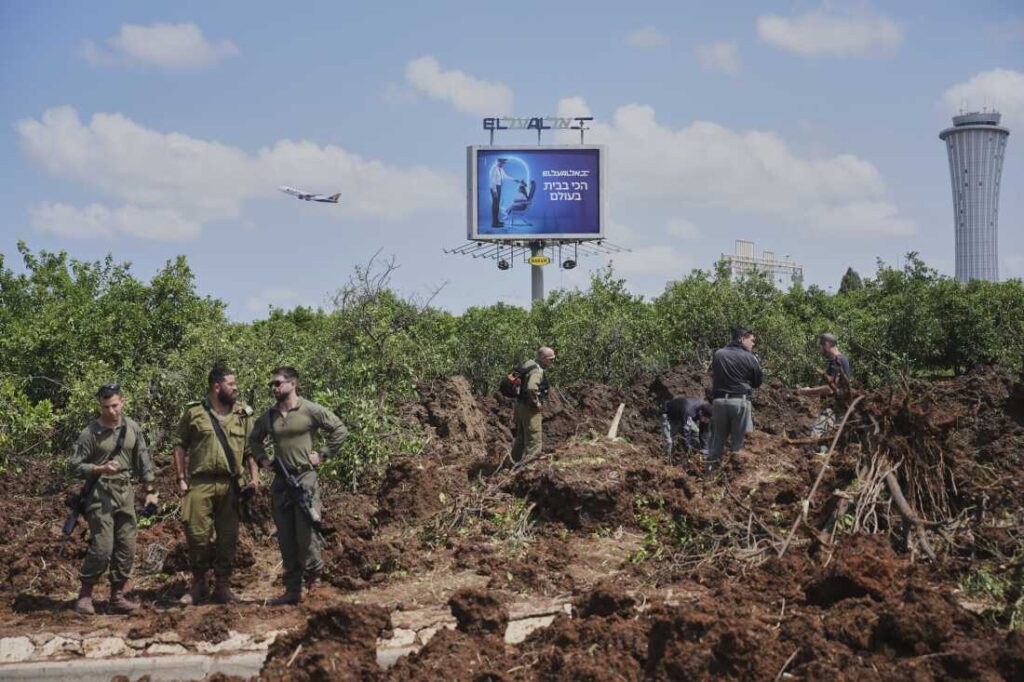A hypersonic ballistic missile launched by Yemen’s Houthi rebels struck near Israel’s Ben Gurion Airport on Sunday, injuring eight people and prompting Prime Minister Benjamin Netanyahu to pledge a forceful and sustained military response.
The missile, which evaded interception by both Israeli and U.S. defense systems, landed close to the airport’s main terminal, causing a crater and damaging nearby infrastructure. The attack led to a temporary suspension of flights and heightened security concerns at Israel’s primary international gateway.
Netanyahu, in a video statement, emphasized that the retaliation would not be a singular event but part of a broader campaign. He stated, “It’s not a one-and-done. There will be blows.” Defense Minister Israel Katz echoed this sentiment, indicating that the response would target both the Houthis and their Iranian backers.
The Houthis claimed responsibility for the missile strike, asserting it was in solidarity with Palestinians amid Israel’s ongoing military operations in Gaza. They warned of further attacks on Israeli airports, declaring that Ben Gurion Airport is no longer safe.
The missile’s impact near the airport marks the first time such an attack has reached so close to this critical infrastructure. Despite the deployment of advanced defense systems like the U.S.-made THAAD and Israel’s Arrow system, the missile was not intercepted, raising concerns about the effectiveness of these defenses against hypersonic threats.
The incident has disrupted international travel, with several airlines, including British Airways and Lufthansa, suspending flights to Tel Aviv. The airport, which handles over 21 million passengers annually, resumed operations within 30 minutes, but the attack has left a lasting impact on perceptions of security.
This escalation comes amid a broader regional conflict, with Israel engaged in military operations in Gaza following a Hamas attack in October 2023. The conflict has resulted in significant casualties and displacement in Gaza, further intensifying tensions in the region.
In response to the missile attack, Israel has conducted airstrikes targeting Houthi-controlled infrastructure in Yemen, including ports and power stations. These strikes are part of a series of retaliatory actions aimed at diminishing the Houthis’ capabilities and deterring further attacks.
The United States, already involved in air and naval operations against the Houthis, has expressed support for Israel’s actions. However, Iran has warned that it would retaliate if attacked by the U.S. or Israel, adding another layer of complexity to the geopolitical landscape.




 Turkey’s Naval Outreach to Pakistan Signals Strategic Shift
Turkey’s Naval Outreach to Pakistan Signals Strategic Shift 